We all know that sometimes things don't go as planned, especially in a hospitality setting, and guest complaints can be challenging. However, addressing these concerns swiftly and effectively can turn a negative experience into a loyal relationship. Crafting the perfect letter template for resolving guest complaints not only ensures professionalism but also showcases your commitment to customer satisfaction. So, if you're ready to discover how to turn complaints into compliments, read on!
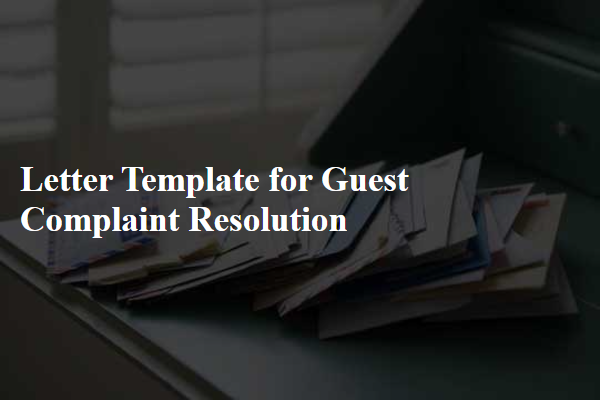
Personalized Greeting
Personalized greeting sets the tone for effective guest complaint resolution, fostering a sense of empathy and attentiveness. Addressing the guest by name enhances rapport, ensuring that communication feels unique and tailored. For example, "Dear Mr. Smith," demonstrates respect and acknowledgment of the individual, which is crucial in hospitality settings. This approach not only makes the guest feel valued but also establishes an open channel for constructive dialogue regarding their concerns. Overall, a personalized greeting is a vital element in addressing and resolving complaints effectively.
Clear Acknowledgment of the Complaint
Acknowledgment of guest complaints is crucial for maintaining reputation and guest satisfaction in the hospitality industry. A clear acknowledgment process typically involves a prompt response, ideally within 24 hours of receiving a complaint, ensuring the guest feels heard and valued. For instance, in a luxury hotel such as The Ritz-Carlton, a personalized message from the Guest Relations Manager can enhance the guest's experience, demonstrating commitment to resolving issues. Effective acknowledgment includes reiterating the specifics of the complaint, which can range from issues like room cleanliness to service quality. In addition, an assurance of investigation into the matter reflects the establishment's dedication to high standards, influencing the likelihood of repeat visits.
Detailed Explanation of the Resolution
When addressing guest complaints, particularly within the hospitality sector, a prompt and thorough resolution is essential for customer satisfaction. For instance, if a guest reports issues with room cleanliness, an immediate investigation should be conducted by the housekeeping team, focusing on common problem areas such as bathrooms and bedding. Following the investigation, prompt corrective actions are necessary, such as assigning additional cleaning staff and ensuring proper sanitization protocols are followed. Additionally, compensation methods may be offered, including discounts on the current stay or future bookings, showing goodwill. Maintaining communication with the guest throughout this process is vital to reassure them that their concerns are being prioritized and to gather feedback on the resolution's effectiveness. Implementing supervisory follow-ups ensures that similar issues do not recur, fostering a commitment to excellence and enhancing the overall guest experience.
Assurance of Future Prevention
A comprehensive guest complaint resolution process is essential for maintaining customer satisfaction in hospitality settings, such as hotels and resorts. Effective communication with guests, particularly following incidents leading to dissatisfaction, is crucial. The property management team needs to ensure that specific issues, like room cleanliness or service delays, are addressed promptly. Implementing training programs for staff can improve future interactions and reduce similar complaints. Utilizing feedback mechanisms, such as post-stay surveys, allows management to gain insights into guest expectations and areas requiring improvement. Establishing a protocol for prompt follow-up can build reassurance among guests that their concerns are taken seriously, fostering loyalty and a positive reputation in the competitive hospitality market.
Professional Closing with Contact Information
With recent advancements in the hospitality sector, addressing guest complaints has become critical in maintaining customer satisfaction and loyalty. Effective resolution strategies often include timely responses and personalized communication. Utilizing professional closing statements ensures that guests feel valued and understood. Essential contact information should be provided, including direct phone numbers, email addresses, and operating hours for guest services. This transparency encourages ongoing engagement, fostering a trusting relationship between the establishment and its patrons. Implementing systematic follow-ups can further enhance the guest experience, ensuring that their concerns are fully addressed and resolved.

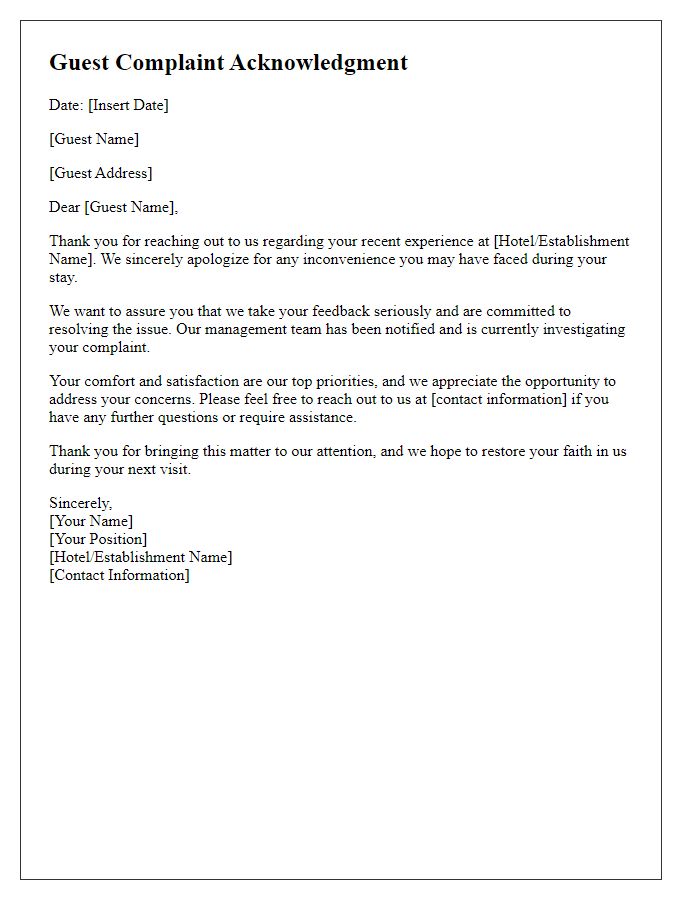
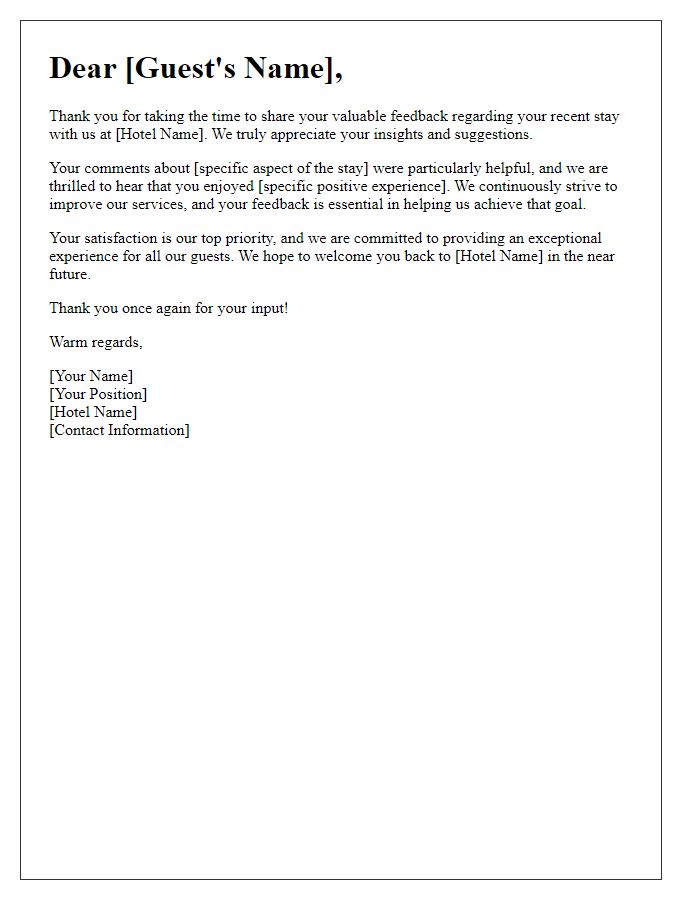
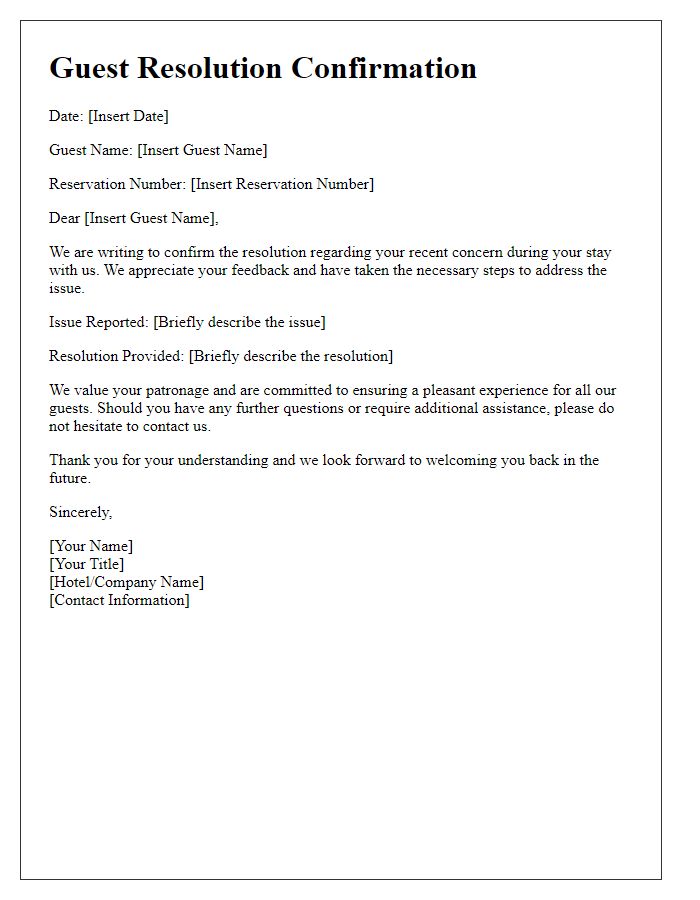
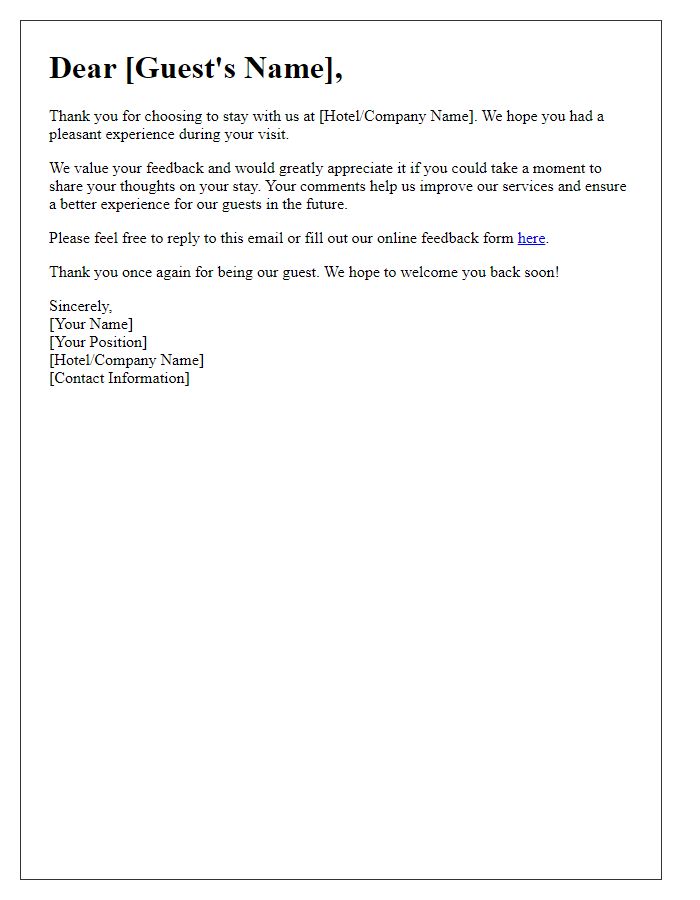
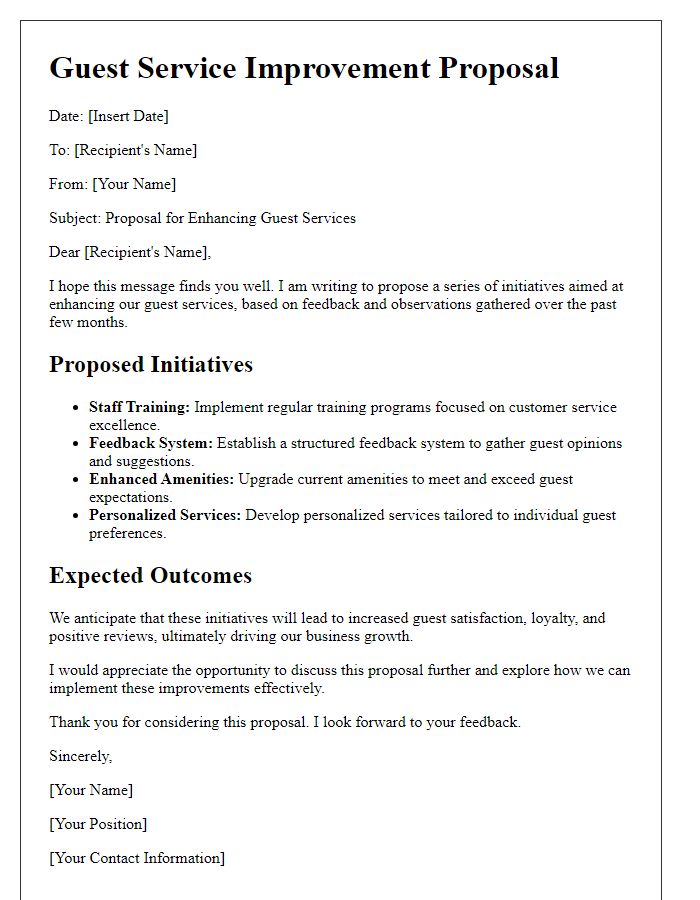
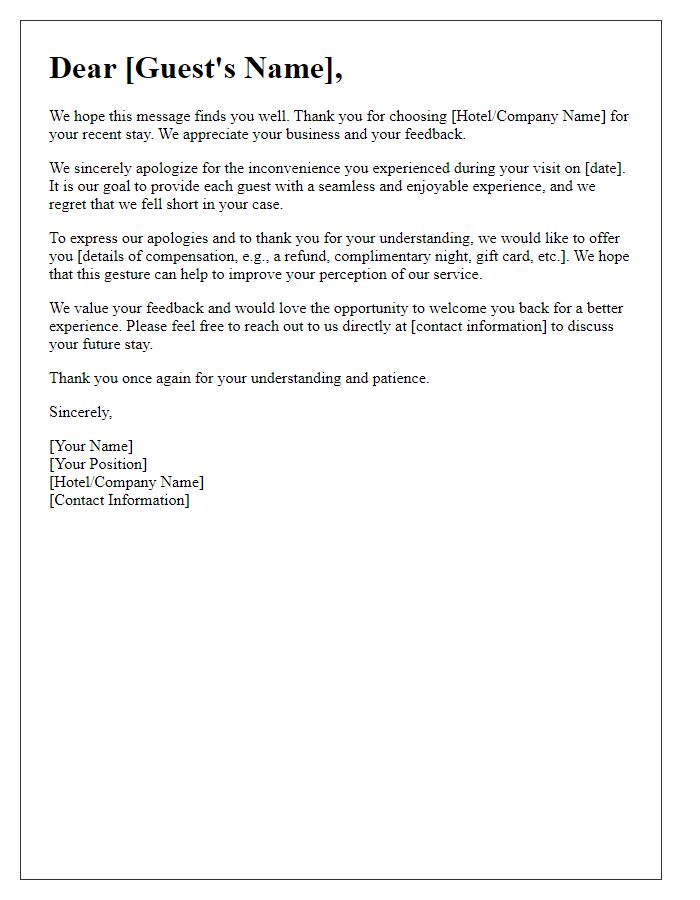
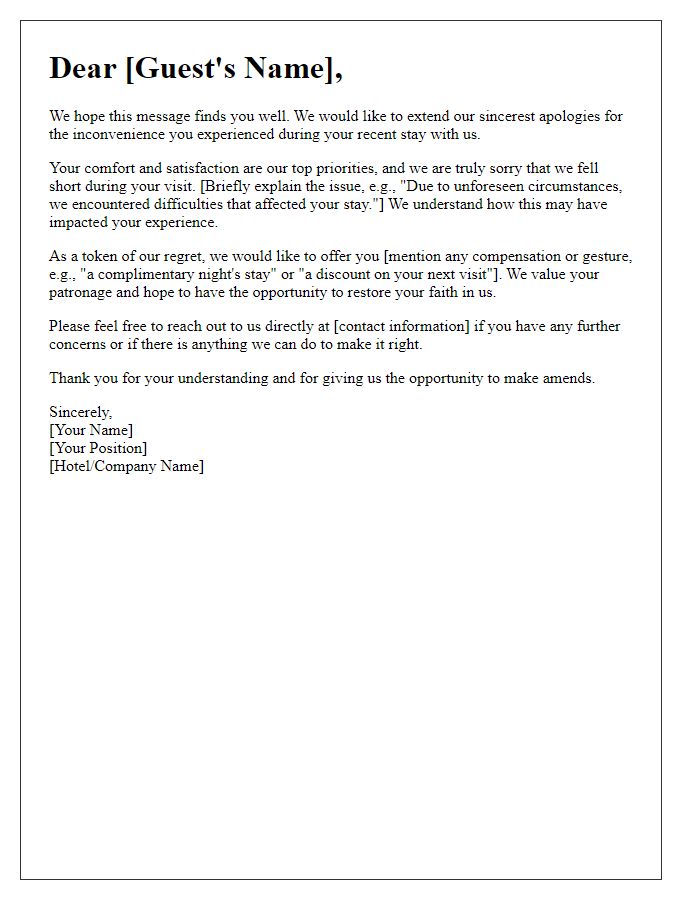
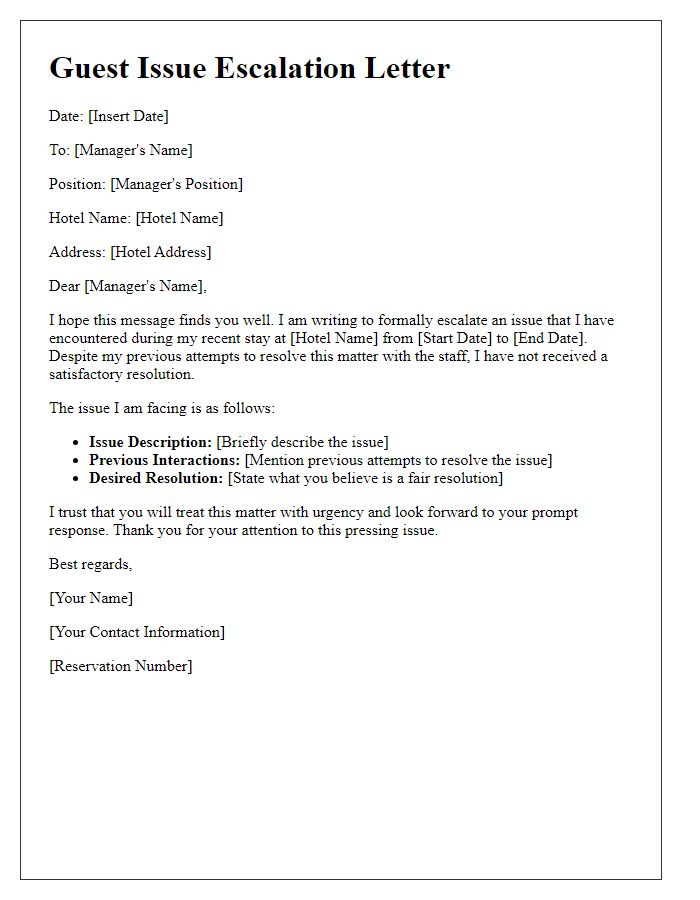
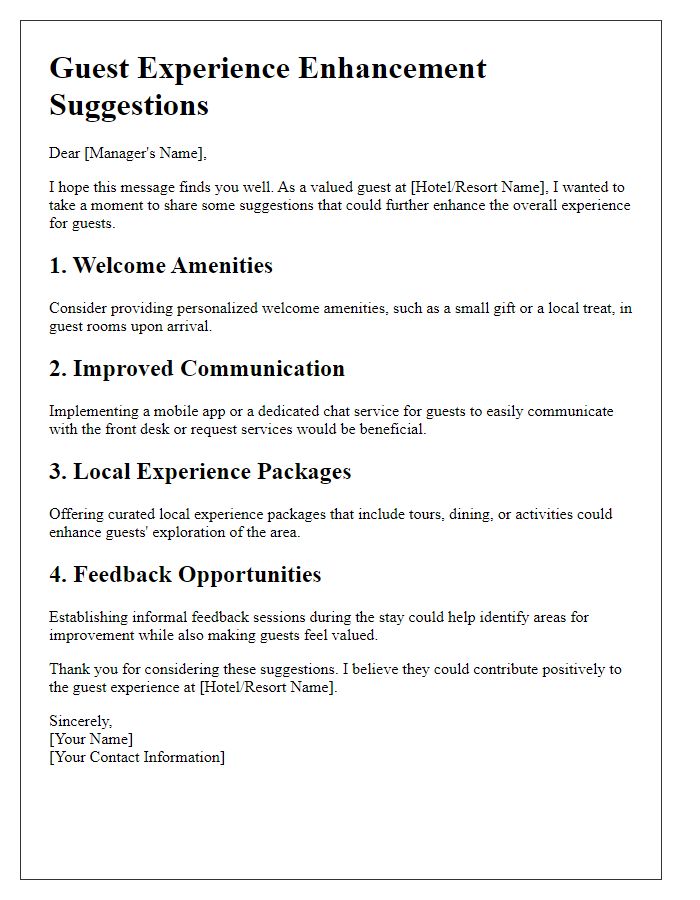
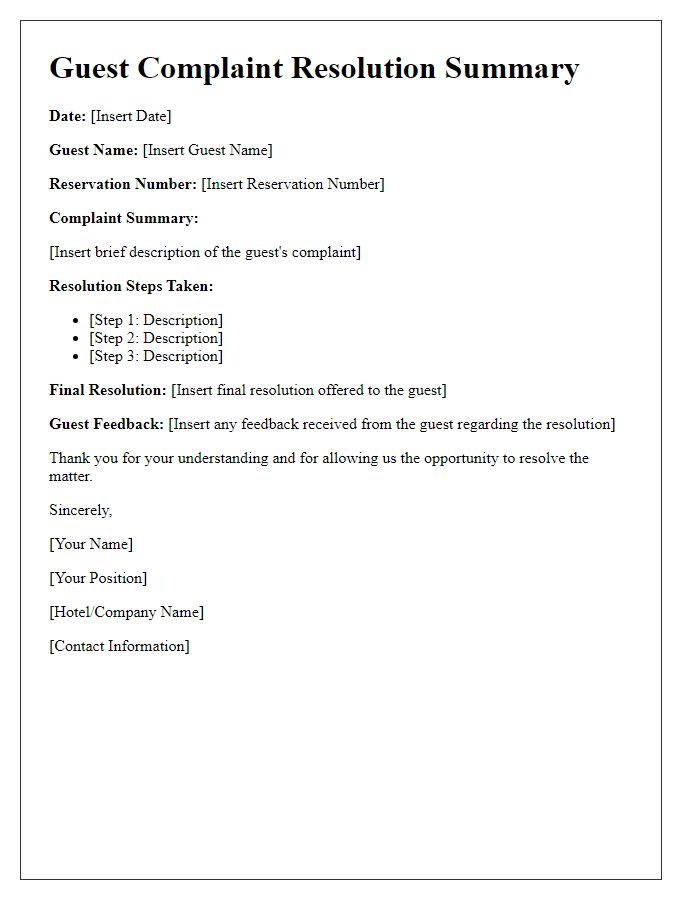

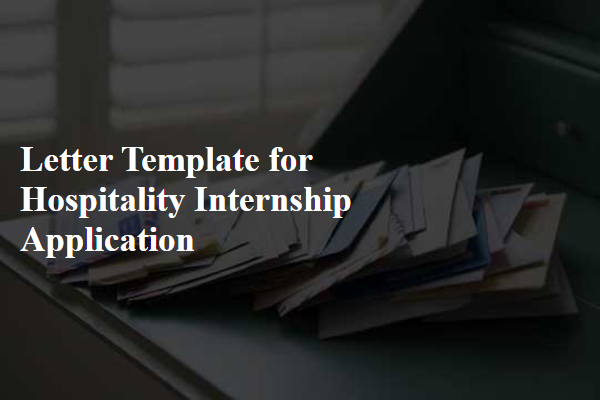
Comments